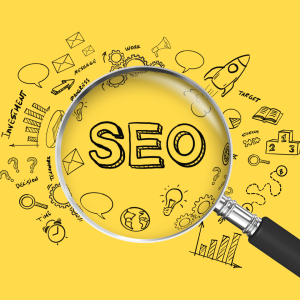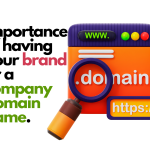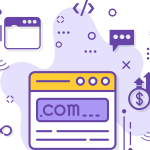The Internet of Things (IoT) is a transformative concept that has the potential to revolutionize the way we live, work, and interact with the world around us. It represents a network of interconnected devices, machines, and objects, each embedded with sensors and software that enable them to collect and exchange data seamlessly. In this article, we will explore the key aspects of IoT, its applications across various industries, the benefits and challenges it presents, and its potential to shape the future of our connected world.
Understanding the Internet of Things
At its core, the Internet of Things is about connecting physical objects and devices to the internet, allowing them to communicate with each other and with humans. These objects, often referred to as “smart” devices, range from everyday items like smartphones and wearable gadgets to industrial machines, home appliances, and even city infrastructure.
IoT devices are equipped with sensors that gather data, such as temperature, humidity, location, motion, and more. This data is then transmitted over the internet to be analyzed, stored, and used to trigger actions, make decisions, or provide insights.
Embrace the interconnected world of possibilities, where every device whispers its story, and the Internet of Things weaves the fabric of a smarter tomorrow.
Applications of IoT Across Industries
The impact of IoT is far-reaching, spanning across various industries, each embracing its potential to enhance efficiency, productivity, and customer experience.
Smart Homes: In the realm of smart homes, IoT devices allow homeowners to remotely control lighting, temperature, security cameras, and even home appliances using smartphones or voice assistants. This integration creates a more convenient, energy-efficient, and secure living environment.
Healthcare: In healthcare, IoT devices have revolutionized patient monitoring and management. Wearable health trackers and remote medical sensors enable real-time data collection and analysis, helping doctors and caregivers provide better, personalized healthcare solutions.
Transportation and Logistics: IoT plays a crucial role in optimizing transportation and logistics. Smart sensors in vehicles and shipping containers enable real-time tracking, route optimization, and predictive maintenance, leading to cost savings and improved supply chain efficiency.
Industrial IoT (IIoT): In the industrial sector, IoT is transforming traditional factories into smart, interconnected environments. IIoT enables better asset management, predictive maintenance, and process optimization, leading to increased productivity and reduced downtime.
Smart Cities: IoT is a driving force behind the development of smart cities. Connected infrastructure, such as smart streetlights, traffic management systems, waste management, and public safety initiatives, contributes to improved urban living and sustainability.
Benefits and Challenges of IoT
The IoT revolution offers a host of benefits, making it one of the most exciting technological advancements in recent years.
Enhanced Efficiency: IoT enables automation and data-driven decision-making, resulting in increased efficiency across various processes and industries.
Improved Quality of Life: From personalized healthcare solutions to smart homes, IoT has the potential to enhance the quality of life for individuals and communities.
Cost Savings: IoT-driven predictive maintenance and energy management lead to cost savings for businesses and consumers alike.
Real-Time Data Insights: IoT provides real-time data that can be leveraged to optimize operations, improve products, and create new business models.
However, along with its benefits, IoT also presents challenges that need to be addressed:
Security and Privacy Concerns: The proliferation of connected devices raises concerns about data privacy, cybersecurity, and potential vulnerabilities.
Interoperability: With a wide array of IoT devices and platforms, ensuring interoperability and seamless communication becomes a challenge.
Data Overload: The massive amount of data generated by IoT devices requires robust data storage, analytics, and processing capabilities.
The Future of IoT
The Internet of Things is a rapidly evolving field that shows no signs of slowing down. As technology advances, we can expect IoT to become even more ubiquitous, with billions of devices seamlessly working together to shape a smarter, more connected world.
The integration of 5G networks will enable faster and more reliable data transmission, further unlocking the potential of IoT applications. Additionally, advances in AI and machine learning will empower IoT devices to become more autonomous and intelligent, making data analysis and decision-making even more efficient.
As IoT continues to mature, it will be essential to address the challenges surrounding security, privacy, and standardization. Governments, businesses, and consumers must work together to create a regulatory framework that promotes responsible IoT deployment while safeguarding data privacy and security.
The Internet of Things represents a digital revolution that is transforming the way we interact with technology and the world around us. From smart homes and connected cities to industrial optimization and personalized healthcare, IoT is reshaping industries and enhancing our everyday lives. The future of IoT is exciting and promising, offering a world of endless possibilities and untapped potential. As we embrace this transformative technology, it is crucial to strike a balance between innovation, security, and ethical considerations to fully unlock the power of the Internet of Things.






